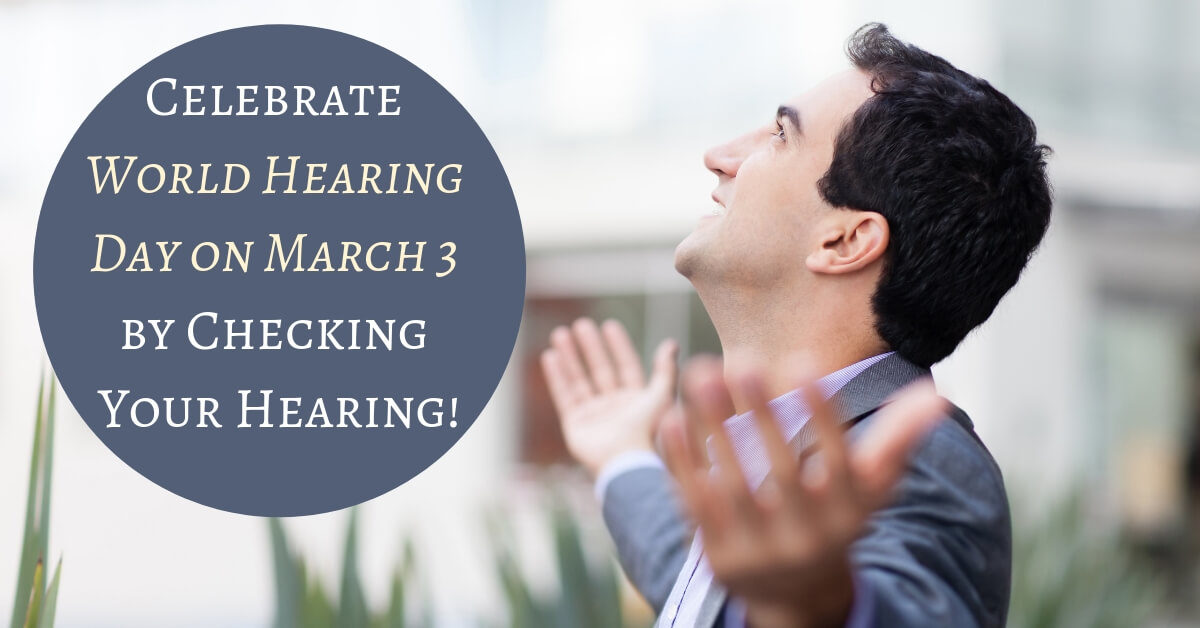
Celebrate World Hearing Day on March 3 by Checking Your Hearing!
On the 3rd of March, people around the world celebrate World Hearing Day. Spearheaded by the World Health Organization (WHO), the event aims to highlight how important it is to look after your hearing. There is a different focus every year, and this year the organizers have decided to focus on the early identification of hearing loss. This is shown in its slogan for the campaign: “Check you hearing!” Many people around the world are living with unidentified hearing loss, and the campaign wants people worldwide to pay attention to put the focus on their own hearing.
WHO recommends that everyone check their hearing regularly, but in particular those who are:
- At a higher risk of hearing loss such as adults above 50 years.
- Working in noisy places.
- Listening to music at high volumes for long periods of time.
It’s worth looking at these risk groups in more detail.
1. Adults above 50 years
Those who are older than 50 years are the most at risk of age-related hearing loss. Also known as presbycusis, this is probably why one in three Americans between the age of 65 and 74 has hearing loss. The numbers increase as we get older, with almost half of those older than 75 having difficulties with their hearing. Age-related hearing loss affects both ears equally and the development Is very gradual, which means you might not realize you’ve lost some of your hearing ability.
The most common cause of age-related hearing loss comes from changes in the inner ear due to age, or changes along the nerves which connect the ear to the brain. Other chronic conditions like high blood pressure can also lead to hearing loss. It can be a challenge to differentiate age-related hearing loss from hearing loss from a chronic exposure to noise. In reality, most older people who experience hearing loss have a mixture of both.
Hearing loss can be particularly troublesome for people 70 and older as this is already an age group at risk for dementia. Recent studies have linked hearing loss to the acceleration of cognitive decline, which is often a precursor to developing dementia.
2. Those working in noisy places
Your job might be affecting your hearing, especially if you are a farmer, a construction worker or a bartender. According to the National Institute of Occupational Health and Safety (OSHA), about 22 million Americans will be at risk of damaging their hearing through workplace noise this year.
One of the hardest hit professions in the U.S. is farming. Astonishingly, over one-third of the farmers have hearing loss. Other industries where workers are at a high risk of occupational hearing loss include manufacturing, entertainment, construction and the military.
Noise-induced hearing loss occurs when an individual subjects themselves to sounds that are too loud for too long. The delicate hear cells in your inner ear are damaged over time, and new cells do not grow back in their place. Once this happens, the damage is irreversible and can only be managed though the use of hearing aids or cochlear implants.
3. Those listening to music at high volumes for long periods of time
With over half the world currently living in urban areas, city-dwellers are being exposed to noise from many different sources on a daily basis. Often, the exposure is self-inflicted. To drown out external city noise, many people use earphones with their smartphones to listen to music or stream podcasts. People often turn the volume up past safe listening levels to block out external sound. As a result, we are seeing increased levels of noise-induced hearing loss among younger people.
WHO estimates that about 1.1 billion teenagers and young adults are running the risk of developing hearing loss due to the unsafe use of smartphones and MP3 players, as well as the noise generated from late-night entertainment venues. To this end, they have launched a separate campaign called “Make Listening Safe” which hopes to draw attention to the damaging effects of recreational exposure to noise.
Visit Us at Absolute Audio
If you or someone you know falls into one of these risk groups, the best thing to do is to book a hearing test. On 3 March 2019, WHO will launch a free app that will even conduct a basic hearing test in the comfort of your own home. However, the best move for your hearing health is to schedule a comprehensive hearing test. Contact us at Absolute Audio to schedule an appointment!
